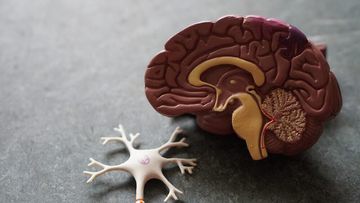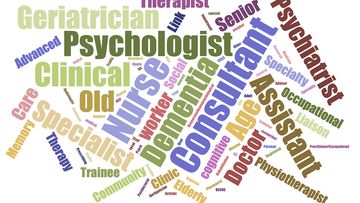Reviewing two years of our mild cognitive impairment course
NewsIn 2021, Dementia Academy was asked to support a valued faculty member in delivering some virtual education for Greater Manchester around mild cognitive impairment with support from local non-profit, Dementia United.
Two years later, more than 150 people from a broad spectrum of roles across health, social care and the voluntary sector have attended the virtual course, whilst almost 30 localities have benefited from a quality improvement project as a result.
This is that journey in brief…
MCI 1: 2021
The first course, directed by Dr Ross Dunne, ran in 2021 and featured a series of modules addressing different aspects of, and views on, mild cognitive impairment from neurophysiology to service models, research to risk modification. Each module included a lecture and two interviews with experts, and was aimed at anyone who might be working in service provision for people with cognitive impairment.
Delegate from 2021 course
Quality improvement: 2021
Each module ended with a range of ideas for quality improvement in that area, so a spectrum of suggestions from diagnosis to assessment, information to audit were presented to delegates. Of the 78 people who completed the course, 24 elected to carry out a quality improvement project in their area, creating a real spread of service change across the UK (see map).

Map: An overview of the number and localities of quality improvement projects resulting from MCI 1 (2021)
Quality improvement projects covered a range of topics, and several were featured in an education with impact report.
Post-diagnostic support
Education and awareness
Brain health and COVID
Dementia with Lewy bodies
Early / improved detection of MCI in people with Parkinson's
Screening and assessment
Anticholinergic prescribing
Care pathway review and redesign
Feedback was incredibly positive, and an early evaluation prompted discussions of a second course in 2022.

MCI2: 2022
We decided to build on the original course model, and developed a wide range of new material catering to a wider range of backgrounds and roles, focusing on a broader array of themes and topics without losing the medical element of MCI and probability of developing dementia, and providing more flexible learning times and options. The importance of brain health and the prevention agenda was a new addition to the course and provided an evidence-base for associated lifestyle change and risk modification as well as service models for brain health clinics from real-life experiences.
The result was 20 expert speakers giving short 10-15 minute presentations or interviews across eight thematic modules with 'deep dive', more in-depth supplementary content available according to the individual delegate's preferences.
MCI2 modules cover:
MCI and dementia: an introduction, the difference, and opportunities to support health
Brain health: a new perspective on prevention
Cognitive testing, monitoring and red flags for MCI
Evidence-based interventions
Service planning, development and collaboration
The importance of service user involvement
Impactful quality improvement in MCI and dementia
Living with MCI or dementia
The course has drawn a far wider range of professionals from varying backgrounds, including therapists, nursing staff, social prescribers, social workers, audiologists, researchers, pharmacists, advisors and activists, as well as the old age psychiatrists, geriatricians and neurologists we saw attend the first course.
A large proportion of delegates this year have found that time constraints and work pressures have significantly affected their speed of completion, and so far only seven delegates have finished the course, five of whom have begun a project: four quality improvement, one service development. The projects underway are:
Developing a brain health clinic (!)
Creating clear and accessible information for non-English speaking patients entering the memory clinic
Reviewing anticholinergic burden amongst existing patients in care of the elderly
Public and patient involvement to increase research participation / opportunities amongst people with MCI
Considering the interrelationship between depression and MCI amongst existing patients
19 delegates have fed back on most modules, almost unanimously rating the course 4 or 5 out of 5 across every module and remarking on specific aspects which have impacted their practice.
Many delegates who have not completed the course yet have indicated their continued interest in it, and confirmed their intention to carry out a quality improvement project when they finish module 8.
We have continued to receive interest in the 2022 course, and whilst we hope to offer an updated MCI course in 2023, we have decided to open the existing course up again this year to any who are interested. There will not be any additional support or mentorship for those wanting to complete a quality improvement project, although there are significant resources throughout the course itself that may be sufficiently supportive.
Related articles
Promoting prevention, supporting management
Led by proactive clinicians determined to see improvement in the way we prevent, diagnose and manage dementias, Dementia Academy supports healthcare professionals with the latest tools, resources and courses to do just that.


